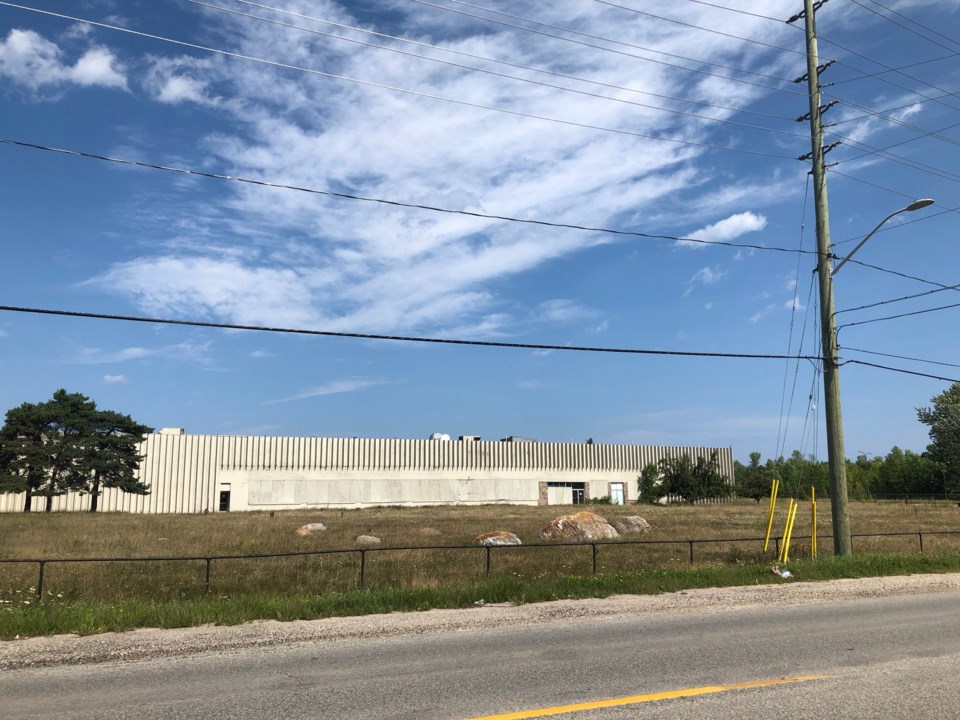A businessman won’t be going to jail for “flouting” environment orders related to his former Collingwood property and his fines were reduced following an appeal of his original sentence.
Issa (Chris) El-Hinn was the sole director of Collingwood Prime Reality Holding which purchased 101 Mountain Rd., in Collingwood, from the Goodyear Tire and Rubber Company of Canada in 2012. He originally pleaded guilty to 11 charges under the Environmental Protection Act for failing to dispose of two transformers and eight capacitors containing polychlorinated biphenyls (PCBs) and failing to remove it all.
PCBs are highly toxic, slow to break down and can cause damage to the nervous system, muscle weakness and cancer.
El-Hinn had been fined $220,000 and handed a 45-day intermittent jail sentence and his company was ordered by a court to pay another $200,000.
He appealed that sentence during a hearing in January on the grounds that the sentence was “demonstrably unfit.”
El-Hinn did not respond to a request for comment.
According to details in the appeal decision earlier this month, the property wasn’t being used and the company was running at a loss when inspectors entered in 2013 and discovered equipment in a room with a sign on the door warning of PCBs. There were two transformers which had signs from Environment and Climate Change Canada warning of Askarel and the eight capacitors had warnings for Inerteen — both liquids contain a significant concentration of PCBs.
Even though El-Hinn was told shortly after that visit about the PCBs, nothing happened for four years despite repeated warnings as well as an order, which was later considered to be the key aggravating factor in his original sentencing. There was a concern that a back-up safety system would not have caught the PCB fluid if there had been any leakage.
The charges were laid in 2016 and the following year most of the equipment was removed at a cost of $110,276.08. After a worker fell, the Ministry of Labour shut down the site until improvements were made. The corporation went into bankruptcy and the property was sold.
El-Hinn pleaded guilty and the sentencing proceedings took place over several days extending into the spring of 2018.
In his appeal decision this month, Justice David E. Harris of the Ontario Superior Court of Justice agreed with El-Hinn that the sentence did not reflect the offence.
“The result was to fix the appellants' moral culpability at too high a level. … As a result, the sentences imposed on the appellants must be revisited. Having done so, I would not impose a jail sentence and would reduce the fines,” wrote the judge in the May 12 decision, while rejecting other arguments of errors in the original sentencing.
Harris found a jail sentence lay in the range of appropriate and proportionate sentences given the four-year-plus delay in compliance and “the flouting of the warnings and the orders, particularly the EPCO (environmental protection compliance order),” but decided against the jail option because although he found it all to be egregious, it wasn’t negligence or on a criminal scale.
It was also about potential, not actual harm. The problem lay in not preparing for a possible risk of the PCBs leaking because of the lack of a back-up system and the “protracted delay in addressing the problem” for four years.
Any leak, he added, would have been disastrous.
While El-Hinn’s company had been convicted of fire code violations, El-Hinn, who was then 52, was a first-time offender. The judge pointed out that his businesses employed more than 500 people.
El-Hinn, he said, had the means to do what was legally required of him and the clean-up should have been done promptly.
The public interest in a jail sentence, however, is not strong and is complicated by the potential threat of COVID-19 exposure in an institution, the judge suggested. He pointed out that, because of the current health crisis, the solicitor general provided temporary absence permits to offenders facing intermittent sentences, meaning that they do not have to serve time in correctional institutions.
“In all the circumstances, substantial fines are sufficient to fulfil the pertinent sentencing objectives. For these reasons, I decline to impose a jail sentence on Mr. El-Hinn,” the judge declared.
And although he said the fines were in the right range for El-Hinn’s refusal to clean up the PCBs, the judge did reduce them. He found that El-Hinn’s “moral culpability” was lower than determined by the sentencing justice and he was looking more at the overall picture instead of the individual counts related to risk of leakage.
Violating the EPCO orders, he said, should be considered separately.
He vacated the original fines imposed and instead ordered fines of $170,000 for the individual and $150,000 for the corporation.
